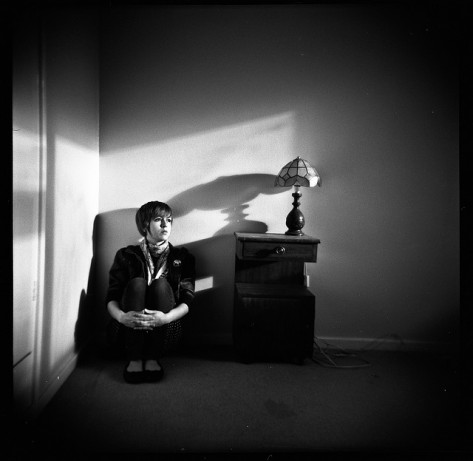
He demands, the landlord, pugnacious, with strangely cut hair
(as though cut in clumps and darkened) that she write the lyrics
for his musical (in which some biblical back story/message
is braided with urban violence) or be killed. By him.
To demonstrate, he kills his wife, who has also refused,
in the next room, allowing her to listen.
She imagines chunks of melons
thunking, rolling pins, or bats.
The project holds no interest.
She asks about credit,
which she would normally receive,
and he says that the lyrics must be ghost-written, that the music
will come second. To her surprise, this comes as a great relief
(the project holds no interest), in particular
because it gives her freedom
to write badly, to destroy
his project, to write in a mediocre
voice, anonymously,
with the conviction that he cannot tell
the difference. Nonetheless, she begins to conceive
of ways in which to leave the apartment,
piece by piece, at lunchtime, say, at times
when he’s not there, carrying her belongings one by one,
until the room she lives in is bare
and she can simply disappear, for good.
Sarah Maclay is the author of three poetry collections–Music for the Black Room, Whore and The White Bride (all, University of Tampa Press), and three chapbooks. Her poetry and critical prose appear in APR, FIELD, Ploughshares, The Best American Erotic Poems: From 1800 to the Present, The Writers’ Chronicle, VerseDaily, Poetry International and elsewhere. She teaches creative writing and literature at Loyola Marymount University.
*Photo courtesy of burnt out Impurities.



